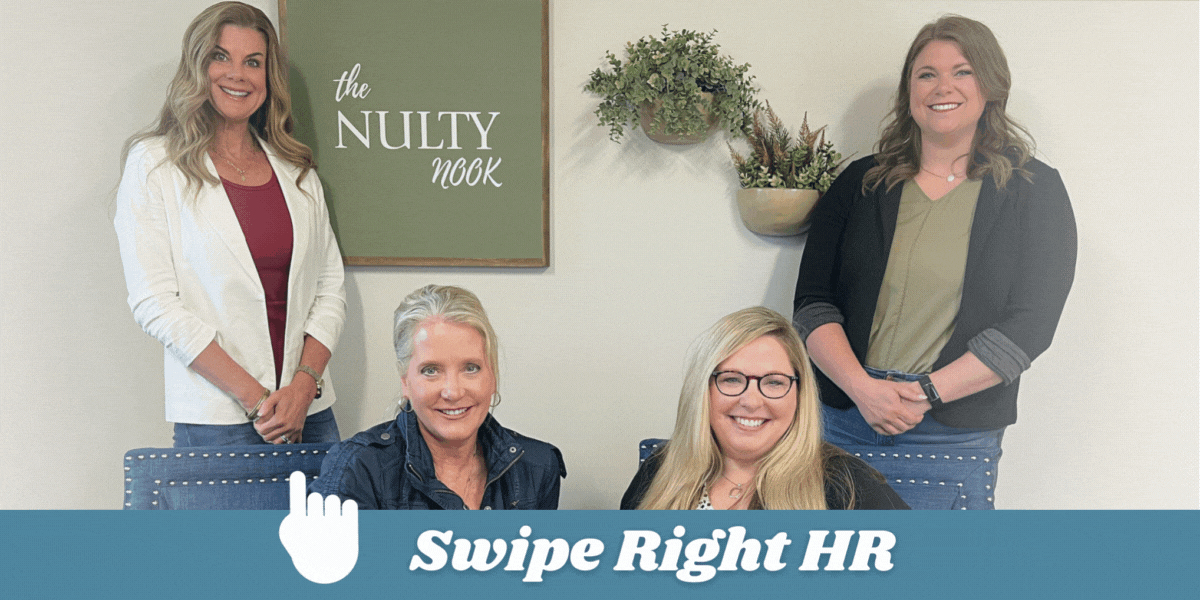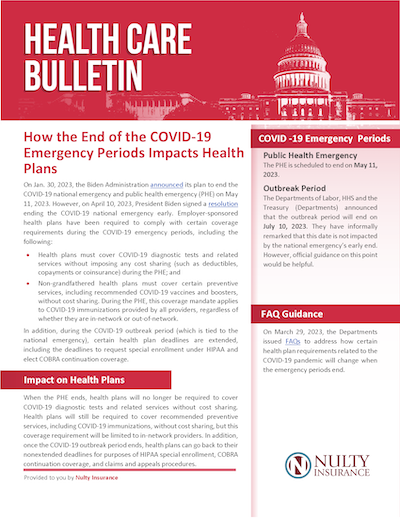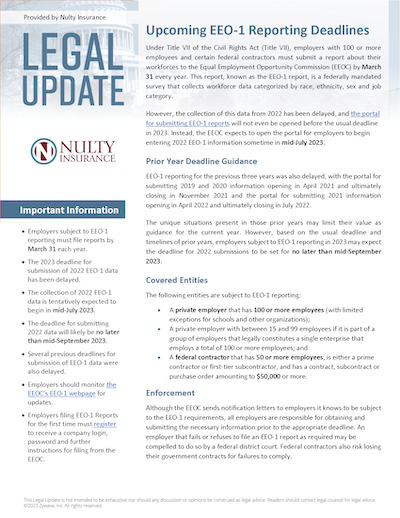
🗓️ May 2023 Edition
Keeping HR pros up to date with important compliance, benefits, and human resources information.
Telework and FMLA Eligibility
On February 9, 2023 the U.S. Department of Labor (DOL) published a Field Assistance Bulletin that provides guidance on how to apply eligibility rules under the Family and Medical Leave Act (FMLA) when employees telework or work away from an employer’s facility.
In FAB No. 2023-1, the Wage and Hour Division (WHD) notes that employees who telework are eligible for FMLA leave on the same basis as any other employee. The employee’s personal residence is not a worksite, but instead it is the office in which the employee reports or from which their assignments are made.
In addition, the count of employees with 75 miles of a worksite includes all employees whose worksite is within that area, including employees who telework and report to or receive assignments from that worksite.
With respect to the FMLA’s hours-worked requirement, all hours worked are counted when an employee teleworks from home consistently or in combination with working at another or various worksites.
Guidance on using AI in HR
As AI continues to revolutionize various industries, it is almost making significant strides in the field of HR. AI-powered tools and technologies are now being used to streamline processes and improve efficiency in the HR space.
Some of the most significant applications of AI in HR are as follows:
- Recruiting: AI-powered tools can help HR professionals to analyze candidate resumes, screen candidates, and even conduct initial interviews.
- Employee Engagement and Retention: AI can help identify areas where employees may be struggling and provide personalized support and training. AI-powered tools can also provide employees with efficient access to HR services and support.
- Performance Management: Using AI-powered tools to analyze employee performance data and provide insights into areas where employees may need additional support and training.
A couple items to be aware of regarding the use of AI:
- Be careful screening out prospective or current employees.
- Offer alternative assessments as a reasonable accommodation.
- Be aware of rights to privacy and overlap with the National Labor Relations Act.
AI has the ability to change the way we work in HR, but it is still up to the HR professionals to prevent discrimination in the workforce, including potential discrimination by AI.
If you are interested in learning more about how AI can be used in HR, please reach out to the Nulty compliance team at compliance@nulty.com. We would be happy to discuss this further with you!
PHE – End of COVID
The Public Health Emergency (PHE) ended on May 11. 2023, and the outbreak period will end on July 10, 2023. 👏
During the pandemic, employer-sponsored health plans were required to comply with certain coverage requirements. How does the end of the PHE impact health plans? Refer to the included document to learn more.
If you have questions, don’t hesitate to reach out to your trusted Nulty Advisor or email the Nulty Compliance Team at compliance@nulty.com.
EEO-1
Are you an employer with 100 or more employees or a covered federal contractor who falls under the EEO-1 reporting requirement? If this applies to you, read on for important deadlines!
- Employers subject to EEO-1 reporting must file reports by March 31 each year BUT the 2023 deadline for submission of 2022 data has been delayed and is tentatively expected to begin mid-July 2023
- The deadline for 2022 data submission will likely be no later than mid-September 2023
The following publication is a great resource for learning more and contains important EEOC links.
PUMP Act/PWFA – For pregnant and nursing employees – Q&A
Two new laws that were included in the federal omnibus spending bill, enacted on Dec. 29, 2022, expand workplace rights for employees affected by pregnancy, childbirth or related conditions starting in 2023.
Q: What is the PUMP Act?
A: The Providing Urgent Maternal Protections for Nursing Mothers (PUMP) Act amends the Fair Labor Standards Act (FLSA) to require employers to provide break time and a private place, other than a bathroom, for all employees to express breast milk. It also clarifies that these breaks must be paid work time if an employee is not completely relieved of all work duties during them. A hardship exemption is available for employers with fewer than 50 employees.
Q: What is the PWFA?
A: The Pregnant Workers Fairness Act (PWFA) amends the Americans with Disabilities Act (ADA), which applies to employers with 15 or more employees. Under the PWFA, employers must provide reasonable accommodations to a qualified employee’s limitations related to pregnancy, childbirth or related medical conditions unless it would impose an undue hardship on the business.
The accommodations must be determined through an informal, interactive process, and employers may not deny opportunities based on the need to make them. The PWFA also prohibits employers from requiring leave if another change can be provided or retaliating against an employee for requesting or using a pregnancy-related accommodation.
If you have further questions on these two new laws, and how to be sure you are in compliance with them, please let us know. One of your Nulty teammates will answer all of your questions.
Title IX Handbook Requirements
On March 16, 2023, Governor Whitmer signed the bill adding three additional protected classes to the Elliott-Larsen Civil Rights Act. In addition to religion, race, color, national origin, age, sex, height, weight, familial status, or marital status, the following should be added to your Elliot-Larsen Civil Rights Act statement in your Employee Handbook:
- Sexual Orientation
- Gender Identity
- Gender Expression
If you need assistance with ensuring your handbook is up-to-date and compliant with current legislation, please reach out to us at compliance@nulty.com, and we will help!
Mental Health Month + EAPs
May is Mental Health Month. Our mental health and emotional well-being can change due to factors like workload, stress, and work-life balance. One in five of us will experience a mental illness in a year. More than 50% of the population will have a mental illness diagnosis at some point in life. Mental illnesses are some of the most common health conditions in the United States, meaning this will impact all of us in our workplaces.
Employee Assistance Programs, or EAPs, are a great way for employers to support their employees. EAPs are employer-sponsored programs that provide support services to employees experiencing health, family, financial, alcohol, drug, or stress issues. EAPs provide these services with strict confidentiality standards and can often customize services based on the specific needs of the employer.
If you would like to discuss how you can implement an EAP in your environment, or discuss how to best utilize your existing services, we can help! Contact us at compliance@nulty.com.


